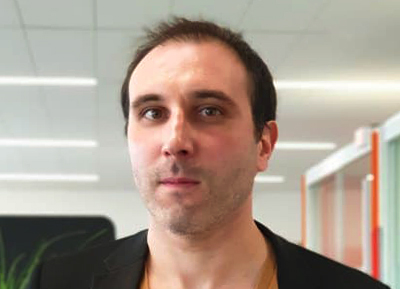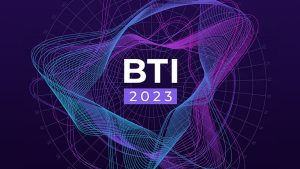OPERATIONAL EFFICIENCY
Deliver more with less
3 proven approaches top-performing managers use to make their team super-efficient
Of all UK & Ireland Expleo client projects in IT, product engineering, manufacturing, and maintenance, 42% focus on continuous operational efficiency improvement.
Our clients include top organisations such as BAE systems, Jaguar Land Rover, NHS and Ofgem.
As a manager, you’re constantly under pressure to deliver more with less. Budgets are tight. Finding new talent is a challenge. We know this is frustrating.
As a result, your team starts to struggle to keep pace with its workload, stress levels rise, and everyone’s work-life balance begins to suffer.
These constraints can hold your organisation back too, preventing you from adapting quickly to new challenges, such as global instability or upcoming regulations. The result is you, your team and your business are stuck in organisational stasis.
According to our latest Business Transformation Index research report, UK and Ireland managers have the same areas of focus :
By analysing over 1,000 Expleo client engagements across multiple industries, we have identified the most common challenges facing organisations today and the three questions managers should ask themselves to overcome operational roadblocks and save time, energy, and resources.
1. What decisions would I have made if I had all the right information?
Before you can prevent wasting your resources, you need to identify where inefficiencies are.
The first step in doing this is to collect your data, with many opting for either an insightful monthly KPI report or a near-real-time BI dashboard. These kinds of tools help you better understand how your team is performing and spot areas of improvement quickly.
But we know from experience that setting up an effective data reporting system isn’t always easy. Clients often face challenges like:
These common issues can become a barrier to identifying challenges such as supply shortages or process quality issues in time to prevent serious issues.

To tackle these challenges, finding an agreement on a single source of truth is key: What KPIs? How do we calculate them? What are the data sources? What will be the level of trust? Then you‘ll be able to create a reliable KPI dashboard to act as the compass for your team.
Expleo is recognised as a data & AI engineering leader among 50 Global ER&D Service Providers. (Zinnov Zones 2022)
2. What if my team can do it right the first time?
Another step to navigating towards zero waste of time and resources is to aim for first-time quality. When you are doing a job right the first time:
When working in the most regulated industries—healthcare, aviation, finance, insurance, automotive or transport—there are additional pressures to achieve first-time quality. Compliance, safety, security, user experience, maintenance, and many other quality requirements take on greater importance, with the costs of failure are far higher too.
According to Aviation Today, it costs $1 million for a commercial airline to update a line of code in its planes.
To do it right first time, each trade has its own methodology:
We support clients in integrating quality assurance, production and cybersecurity early in the software development lifecycle (SDLC) with our DevOps, DevSecOps and Predictive Quality expertise.
our MBSE*, RAMS-ILS** and product cybersecurity experts lead industrials to a higher quality design by considering the requirement-system-operation as a whole and identifying potential issues early in the design process.
*MBSE = Model-Based Systems Engineering
**RAMS-ILS = Reliability, Availability, Maintainability & Safety / Integrated Logistic Support
As a leader in manufacturing quality services provider in European aircraft production and operations, our motto is to create synergy between the employees on the workshop floor and the engineers who design/improve the processes and tools.
When you need to design the best possible solution, you need to fully understand the working environment and processes.

The most crucial aspect is to spend time on requirements elicitation phase with all stakeholders, using techniques such as interviews, surveys, user observation, workshops, brainstorming, and prototyping.
Most of time, projects fail because the design team didn’t understand well the implicit needs of the stakeholders.
By systematically listing and modelling all requirements ahead (using MBSE, OOL, etc), they become a contract with the stakeholders. The modelling of requirements provides a standard way to visualise the requirements and communicate effectively with the stakeholders. It allows your team to move forward and deliver products or services that make your clients satisfied, first time.
3. What if my employees could focus more on high-impact activities?
It is natural that your team want to work on the activities that excite them, the ones that generate the most value and test their skills. However, the truth is that they can often get bogged down by tedious manual tasks:
CIPD Good work index 2022
But what if there was a way that technology could change how your teams work and operate? Using automation across your entire business can supercharge projects and the people working on them.
By picking up the bulk of the repetitive tasks automation enables your people to focus on high value work, such as designing ever-better solution, extracting insights from data or improving customer experience.
Moreover, workflow automation can help you achieve greater consistency and accuracy across your operations, minimising errors and delays that can otherwise hinder progress.
Some process automation solutions we have implemented for our clients:
IT & DIGITAL
Hyperautomation
Using intelligent automation – RPA, OCR, ML, AI – to optimise and deploy business processes
Software test automation
Using tools and scripts to automate repetitive and time-consuming manual testing tasks during software development
PRODUCT ENGINEERING
Model-based design
Using the requirements to generate the embedded code automatically
Automated finite-element simulation & analysis
Using scripts to automate the prediction of structure fatigue life
MANUFACTURING & MAINTENANCE
Automation & Robotics
Using machines and robots to perform tasks and processes such as materials handling or assembling
AI-powered visual inspection
Using computer vision and AI to achieve improved quality inspection at speeds, latency, and costs beyond the capabilities of human inspectors
But we fully believe that technology alone is not the answer and the key to achieving a successful workflow automation project is humans.

Utilising intelligent automation at scale is no longer a choice, but a necessity to stay competitive. To succeed, you must remove silos and empower your people to work in tandem with technology. You must have a clear vision, understand your processes, and bring together different technologies to automate full end to end processes.
WHO IS EXPLEO?
Expleo is a global engineering, technology and consulting service provider powered by 17,000 highly-skilled experts.
We benefit from more than 40 years of experience developing complex products, optimising manufacturing processes, and ensuring the quality of information systems for leading organisations, such as BAE systems, Jaguar Land Rover, NHS and Ofgem.



